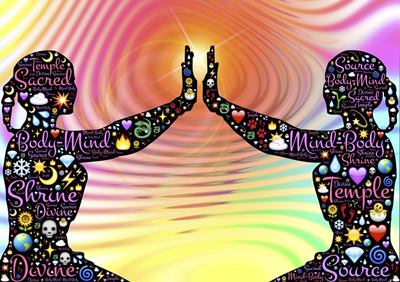Hello,I am looking for advice.
I have used a number of self hypnosis CD’s and paid for hypnosis 1-1.
I keep trying but they seem to have little or no effect on me.
Is there something I am doing wrong? Is there something wrong with me?
Can you advise if there is some thing I could do which would remedy this?
Many Thanks
What if I can't be hypnotized? The short answer is that everyone can be hypnotised. It is simply a matter of finding the right method.
Client centered issues.
What you get is not what you expect
Part of the problem may be that you are expecting something different from what you are getting. Everyone reacts differently to hypnosis. Some people expect to get fireworks and cosmic enlightenment. Others expect to wake up totally blank and remember nothing. Some people feel weightless while others feel their limbs so heavy that they can't move. Still others jerk and twist in trance and are convinced that they can't have been in trance because they can move.
The fact is that everyone's experience is different. I know I am going into trance when my right hand twitches. I know I am going into somnambulism when I get a tingle on my upper lip. But I can also have a conversation when I am in trance.
Issues of control
As a hypnotherapist I get clients from all parts of the hypnotizability spectrum. The ones who do not go into hypnosis easily are usually people who fear losing control. They want to go into trance but when they feel themselves slipping away they instantly snap out of it.
This is often mixed in with or a part of mental anxiety. In some people their mind is always busy. They are so filled with constant thoughts, worries and panics that they cannot focus on the process. Some just drown out the words of the therapist. Others over analyse what the therapist is saying. They are both ways of protecting their mind from what will happen if they lose control.
Hypnotist centered issues
Competence
Some hypnotists just aren't very good. It takes a lot of experience to know when someone is going into trance, and when they are not. Anyone can read a script, and most people will go under. But some people need a different approach or multiple approaches to let go.
Matching the induction to the client
A hypnosis recording is a one-size-fits-all kind of thing. There is nothing wrong with recordings, but they have limitations. NLP says that people are either visual, auditory or kinesthetic. There is some truth in that. So I have to match my induction to the client. I sometimes do two or even three inductions if I don't see the signs of trance I expect to see. And in every case, I test to make sure the client is in trance before I continue with the therapy. Of you course, you can't be tested if you are listening to a recording.
How to deal with it.
The client can't do anything wrong in hypnosis. There is nothing wrong with you or your mind. You are a human being, therefore you can be hypnotized. If you don't go into trance then it is the hypnotist's fault. Everyone can be hypnotised. It might take a while, it might take several goes, but it can be done. Whether the hypnotist has the skills or the patience is another matter.
I suspect that if you have dealt with a competent hypnotist, and you have listened to multiple CDs, and you still can't go into trance, then the issue is one of control. Your mind just won't accept losing control. The test is if you have difficulty with sleep.
A good hypnotist can work with you and find a way of bypassing your loss-of-control fears. However, this might take a lot of time and a lot of money. What I suggest you do is practice a simple form of self hypnosis. This will let you experience the feeling of trance in a safe environment and under your own control. Once you mind learns that you can give up control and not die, you will be able to go into trance easily.
Self hypnosis exercise
All you have to do is to find some quiet place and do the exercise. Start by counting your breaths. On each breath out count from ten down to one until your breathing is soft and regular. Repeat it if you have to. Then count from ten down to one and think to yourself "body relaxing" on each out breath. Repeat if you have to.
Then on each out breath gently whisper or think a word. Any word. The word 'one' is fine. Or 'success' or 'trance' or anything else. The word is not important, the repetition is. Keep repeating the word until you dissociate. This means that the word will lose all meaning, will seem strange, disconnected. When you dissociate you are in the first stage of hypnosis.
Notice what the state feels like. Then practice finding that state again some other time. Practice with your word again and again if you have to. Eventually you will able to think yourself into that state without the exercise. When you have achieved that, you are successfully going in and out of trance. You can then develop from there. The CDs will begin to work and you will begin your path to change.









